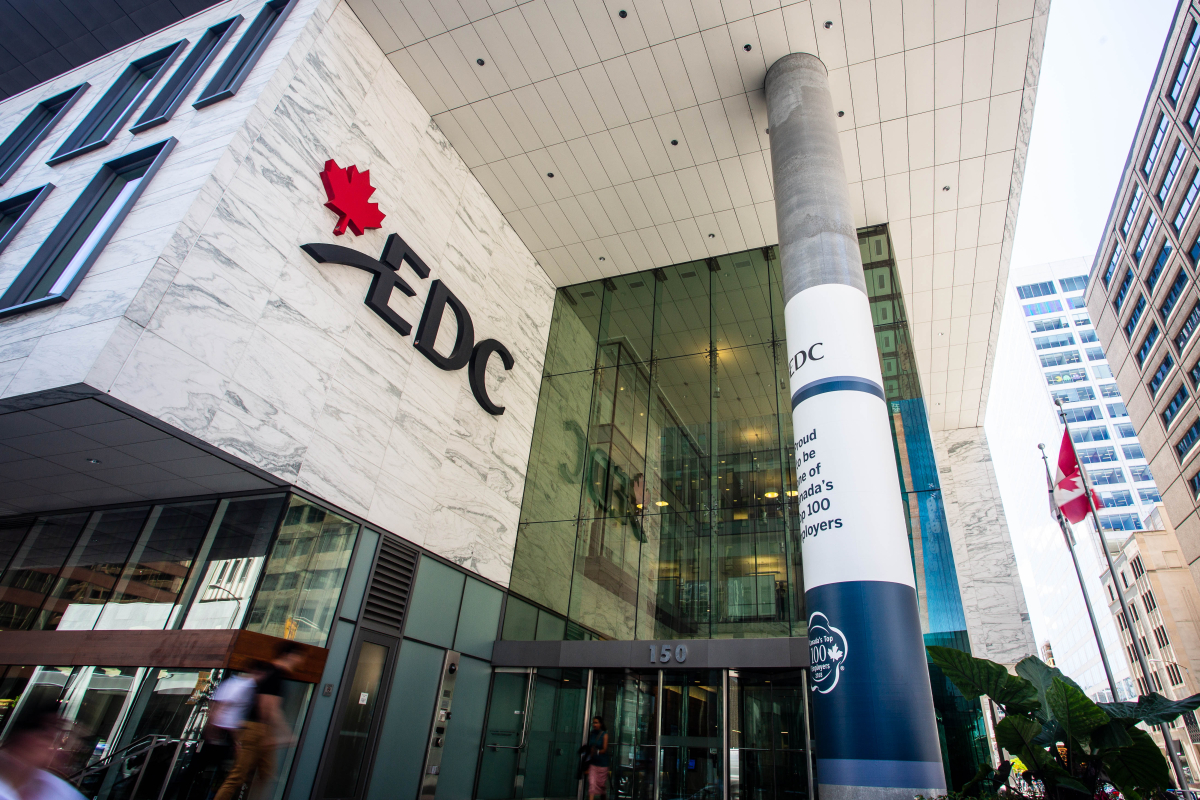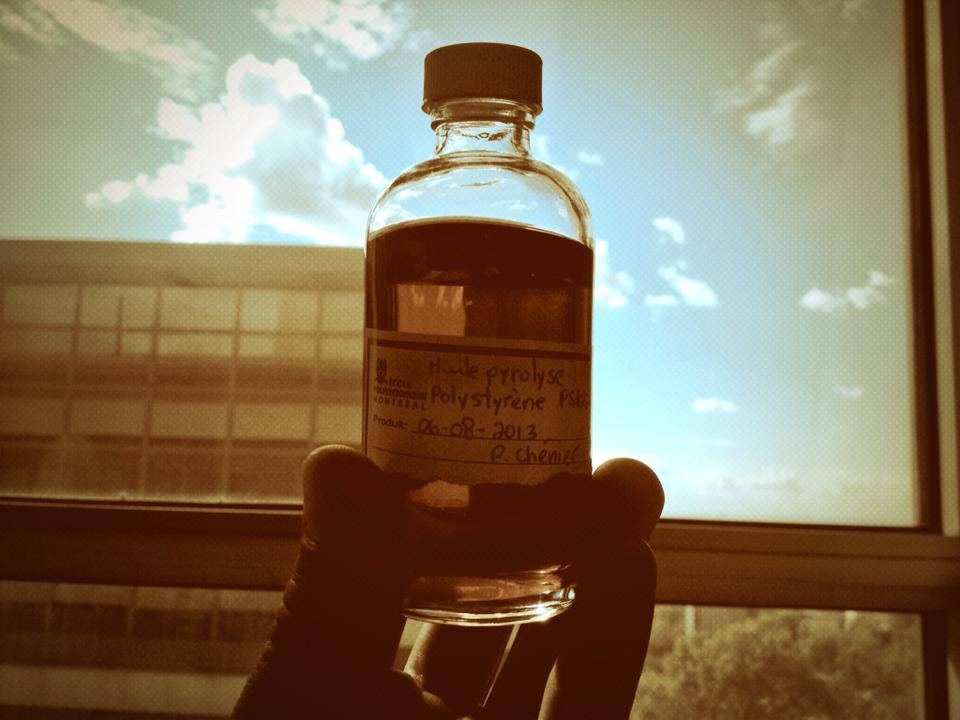Support strong Canadian climate journalism for 2025
Canada's federal credit agency has a new business partner — a plastic-zapping microwave company born and raised in Montreal.
Pyrowave, which uses its unique microwave technology to process plastic waste, will receive a $1-million investment under Export Development Canada's (EDC) new Cleantech Co-Investment Program. The program aims to catalyze growth in smaller, early-stage Canadian clean tech companies with the potential to break into overseas markets.
The deal has been in the works for more than a year, said the company's co-founder and CEO Jocelyn Doucet, and includes contributions from the Montreal-based investor Ecofuel and a European investor as well.
"We're proud to be the first deal in this new program for sure," he told National Observer. "We want to position our technology as the main engine for a circular economy... we would like to see our core technology being integrated into other chemical recycling technologies."
Bringing plastic back to the basics
Pyrowave's patented product breaks down plastic items, like Styrofoam cups or food containers, back into their original compounds. They can then be sold back to companies that want to re-make those same plastic products, or other plastic products made of the same ingredients. It saves companies from having to source new ingredients for plastic from crude oil, and in the process, reduces landfill waste, waste hauling and waste incineration.
According to the U.S. Environmental Protection Agency, less than 10 per cent of plastics generated today are recycled. Having Pyrowave's microwave-like modulars on site at recycling plants could change that percentage significantly, said Doucet, as they ingest waste and expel a dark liquid that can be turned into a wide variety of products.
For every tonne of crude oil left in the ground in that process, he added, about two tonnes of climate-warming greenhouse gas emissions are spared.
"Our goal is to close the loop of plastic so we really can make it a reversible product and infinitely useable," he explained. "I want to see a world where we’re more resource efficient; that’s my end goal, my global vision. Pyrowave is certainly part of the solution to this."
The company has a pilot plant in Montreal, and plans to bring its products to Sarnia, Ont. — a global petrochemistry hotspot — where it can be used in a variety of the city's plants, and new international partnerships may emerge. Doucet said Pyrowave's technology has a broad range of applications beyond the plastic-zapping modular, but it would be premature to discuss them at this time.
"For us this is just the beginning of the story," he said. "The key element that we’ve invented here is the first microwave reactor in the world. That’s essentially what we’ve done at commercial scale."
Doucet declined to reveal specific sales numbers to avoid giving potential competitors an edge. But he said that sales are going well enough that he expects more business soon in Sarnia.

Expanding Canada's clean tech portfolio
Export Development Canada helps Canadian companies extend their international reach by providing insurance, financing and guarantees to banks. It operates at arm’s length from the federal government, but ultimately reports to Parliament through the minister of international trade.
Its new Cleantech Co-Investment Program stems from funds in its regular commercial account, said spokeswoman Shelley MacLean, and will help fill a void in funding for companies that may still have negative-cash flow, but great potential to create clean technology solutions at home and abroad. It does mean taking on a degree of additional risk, she explained, but the risks will be mitigated by the industry adoption rate, and spread out among private sector investors that are interested in clean tech companies.
"The CCIP program has been specifically built to address this market gap," she wrote in emailed comments. "CCIP will provide funds for companies that are getting market traction, but who lack the funds necessary to capitalize on them."
The federal credit agency has not yet determined whether the program will run in perpetuity, but hopes to co-invest with partners in about 10 companies before making that decision, based on program feedback. EDC is the largest financier of clean tech in Canada, and has committed to investing $30 million in clean tech companies by the end of 2020. As of May 31, it had invested approximately $10 million of that target.
MacLean said EDC consults its environmental team before partnering up with such companies, to determine if they're a good fit for the Crown corporation's clean tech portfolio goals.
"EDC does have a team that provides environmental assessments in alignment with EDC’s policies," she explained. "EDC has a Cleantech Team that works closely with the Investments Team to assess companies. We also work with partners such as MaRS and Écotech Québec and SDTC (Sustainable Development Technology Canada) who provide us with referrals."
Export Development Canada first partnered with Pyrowave in 2017 to provide a $500,000-line of credit that would help the company reach customers in the U.S.. The credit agency also has a successful Green Bond program, which offers fixed interest rate loans to companies that work in clean tech, climate change mitigation and readiness, renewable energy and environmental protection.
Last year, EDC provided $1.5 billion in financing and support to nearly 200 cleantech companies in Canada.






Comments
EDC can do more than just subsidize clean tech start-ups - it could help to develope a market for private investors in these innovative technologies to help them grow. Opportunities for Canadians to invest in this sector are currently extremely limited. I for one would like to shift more of my (limited) investment capital into this market.